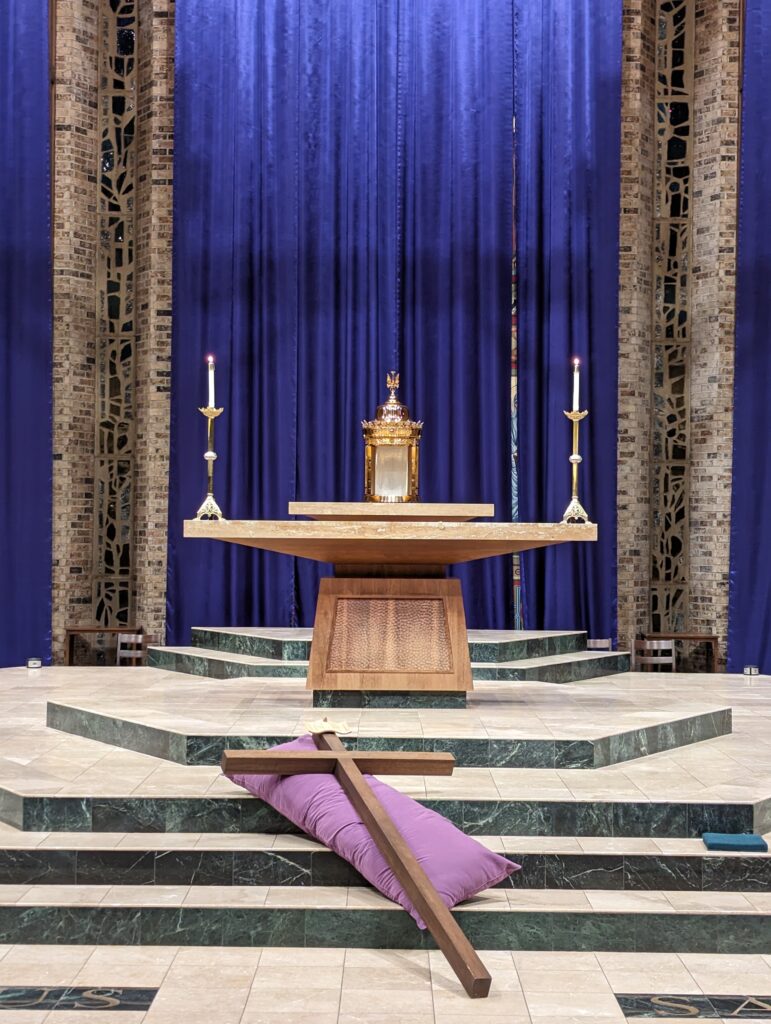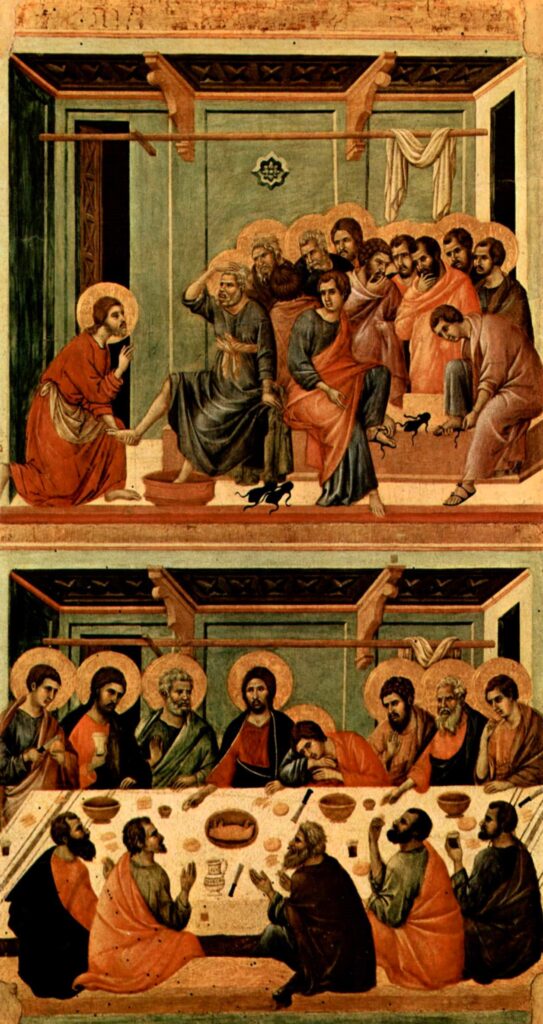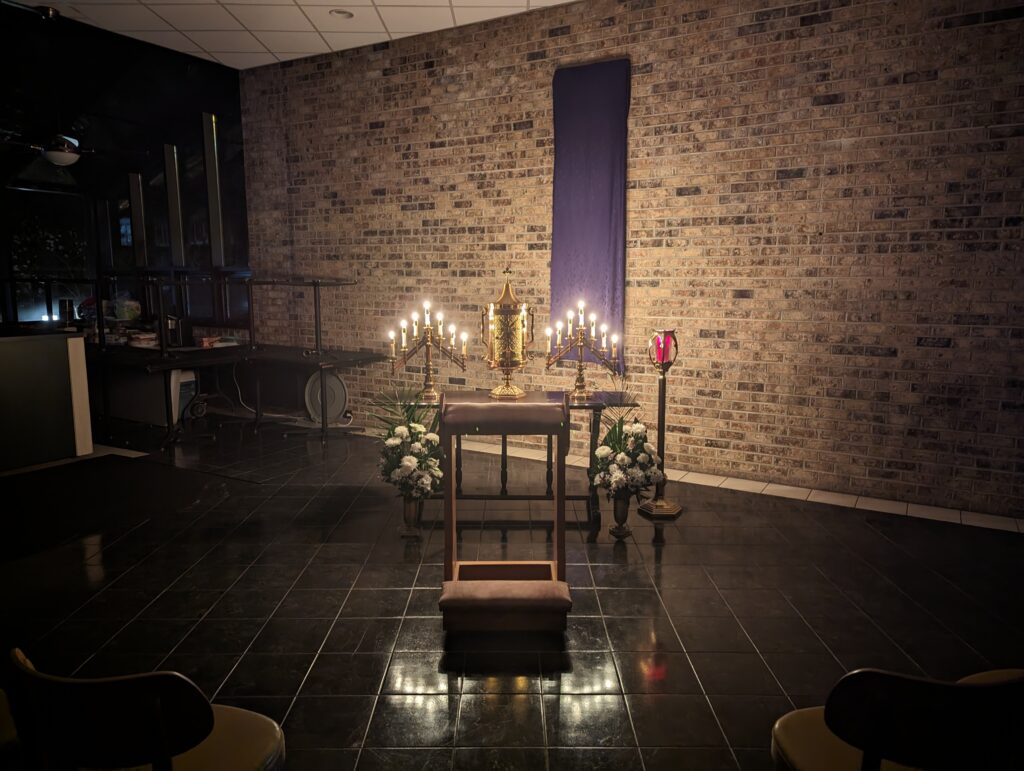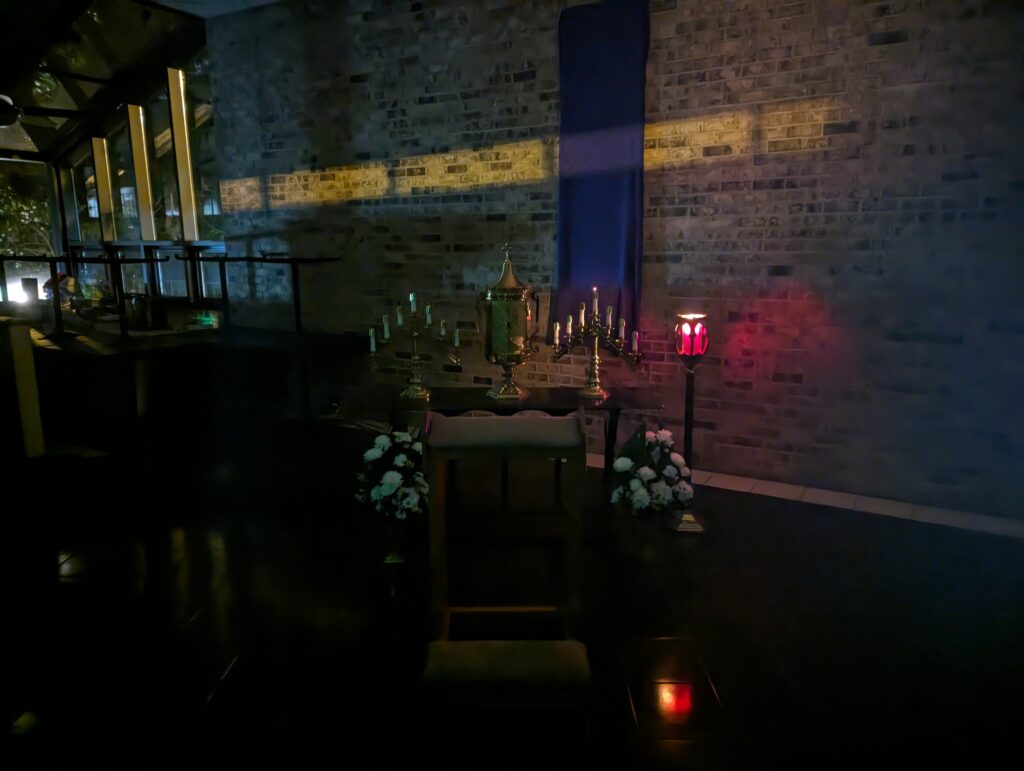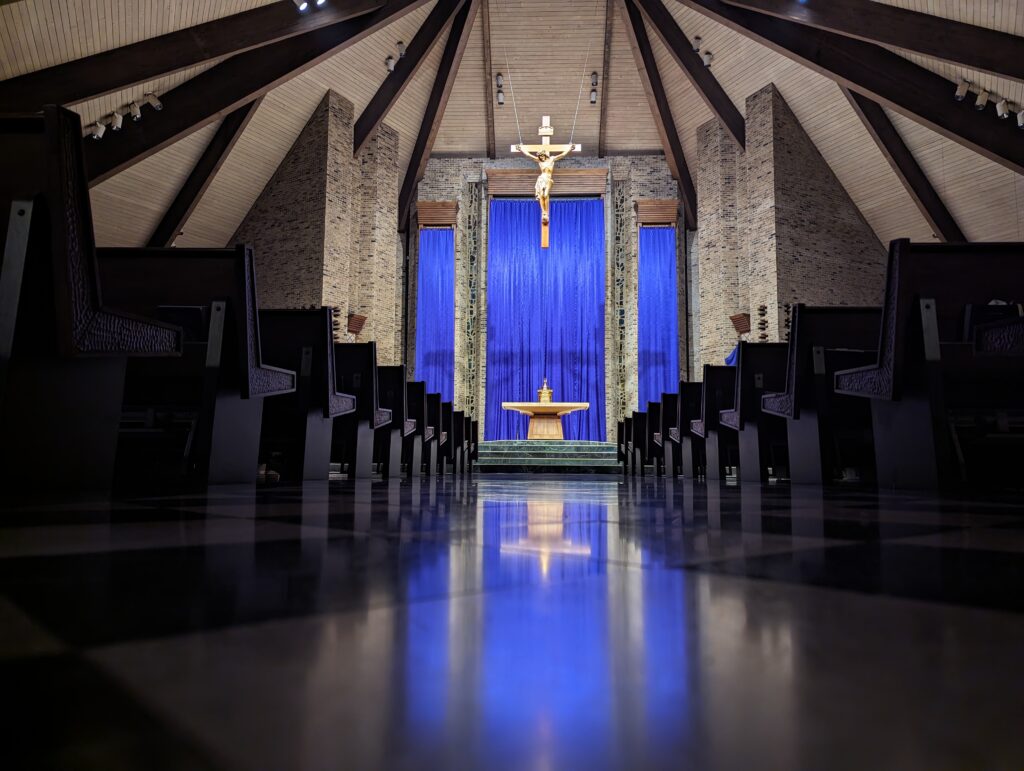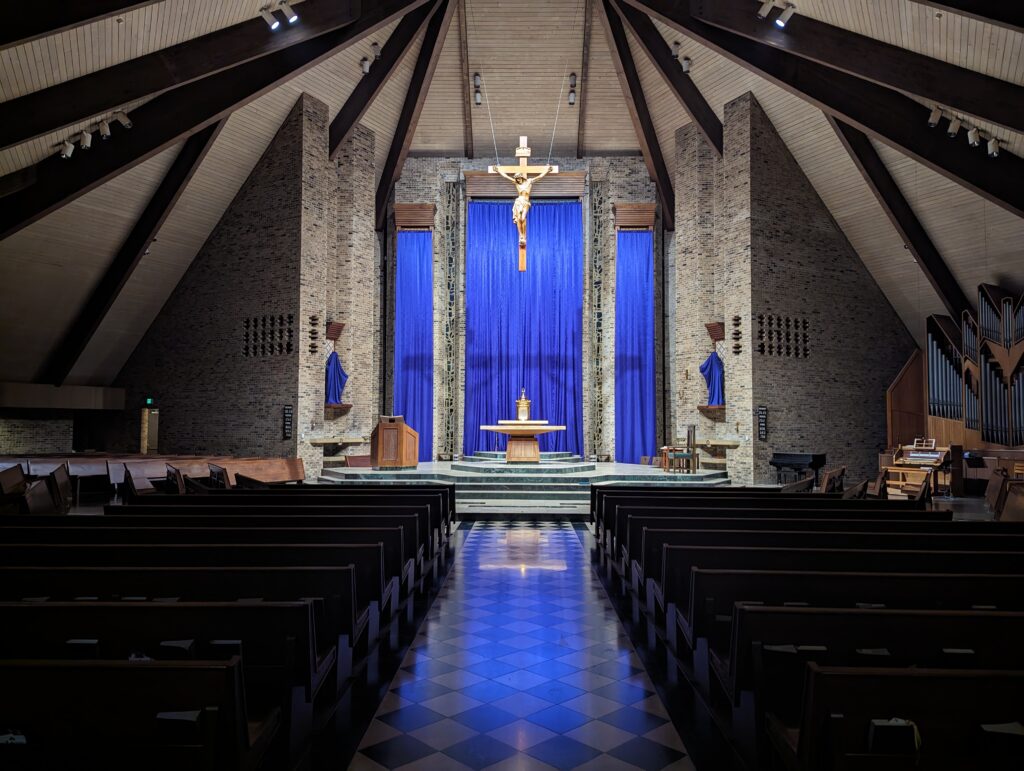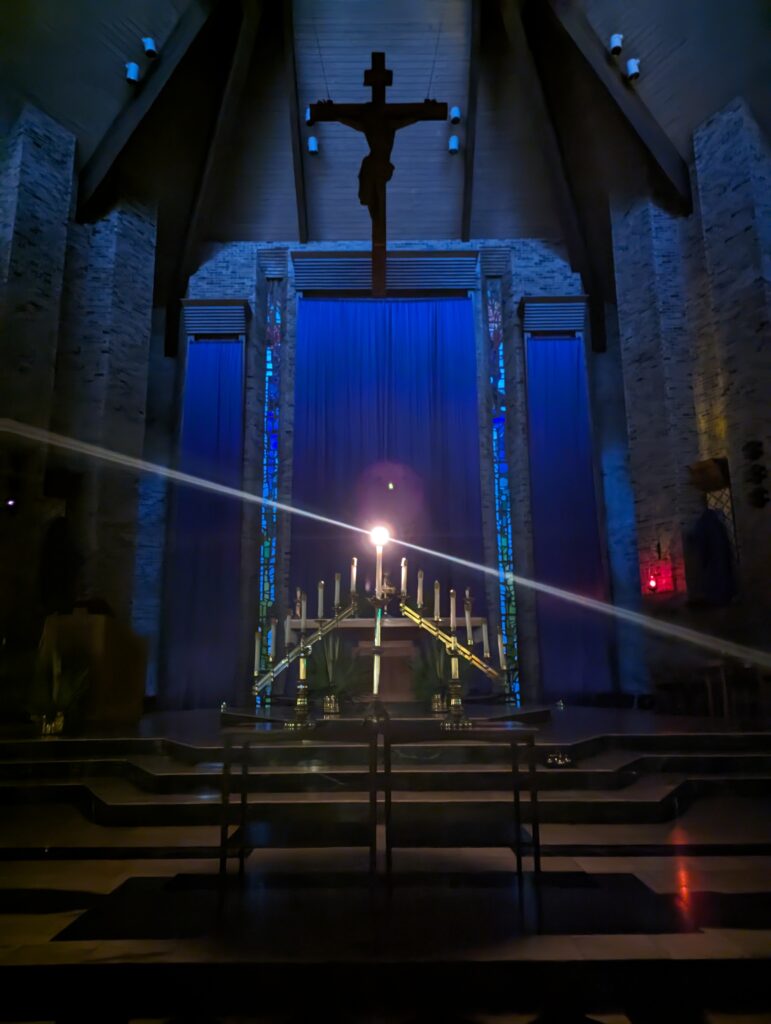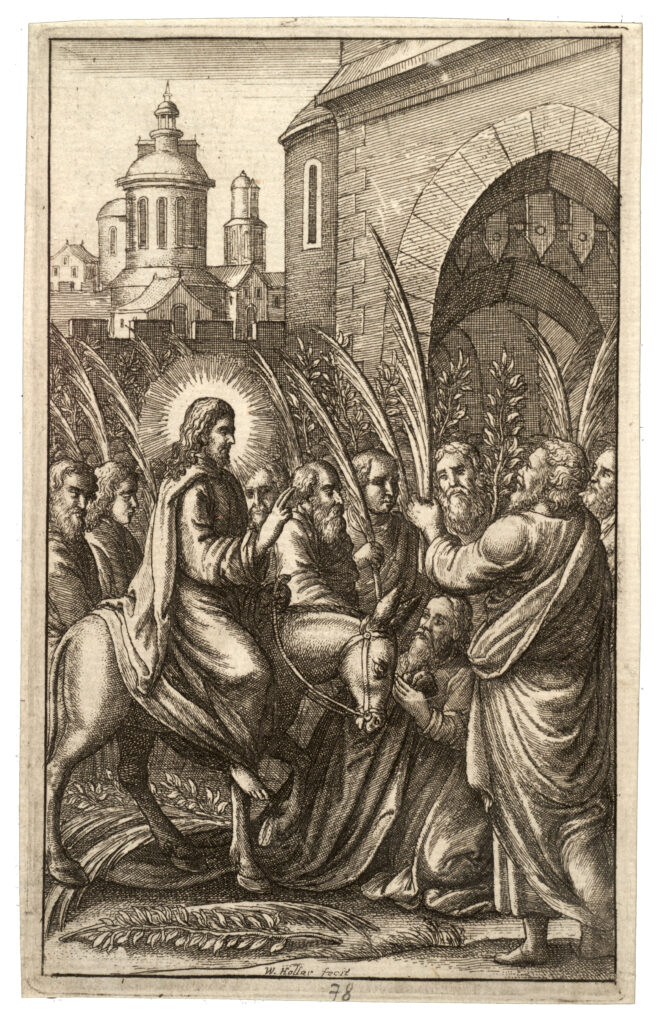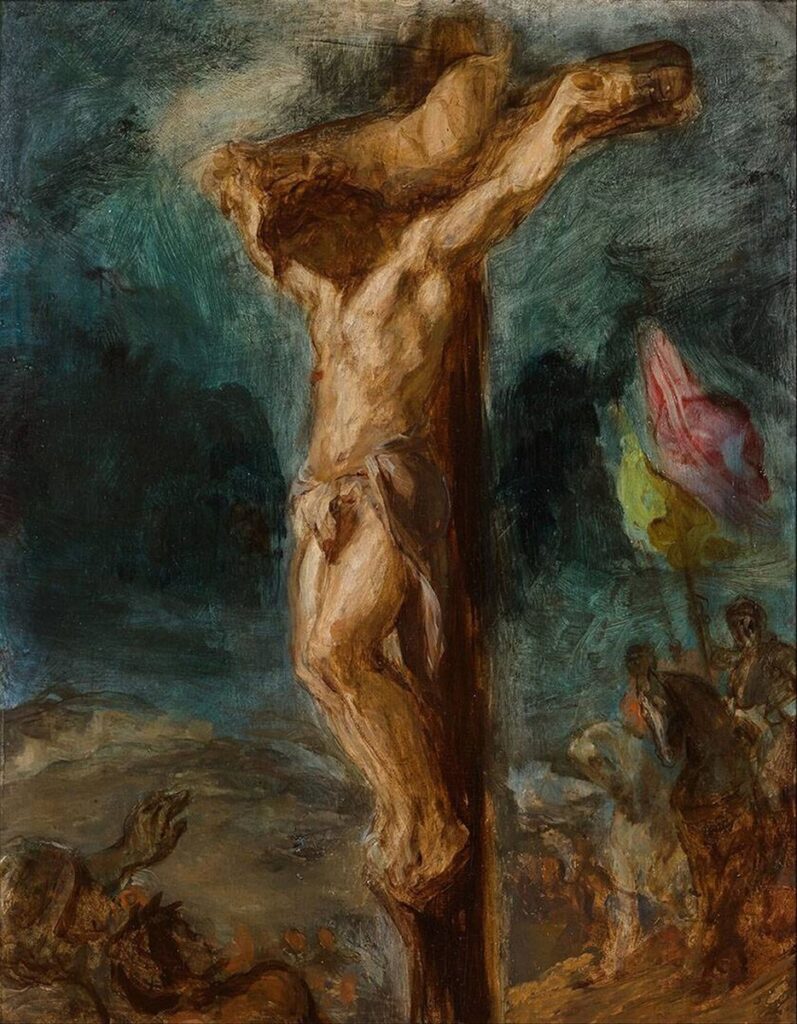Of all of the days of the Triduum, Good Friday is the most intense, both figuratively and practically. Practically speaking, I find it to be the most physically taxing of days. In addition to the normal routine at the parish school (drop-off & prayer), we have morning prayer in place of Mass, the school Passion play, the Tre Ore service with confessions between the Seven Last Words & the accompanying brief homilies, Stations of the Cross, and (at last) the Good Friday service of the Passion of the Lord. It is fitting that the day weighs so heavily, though it can not compare with the weight of the cross or that of our sins.
Between the various services and prayers, I was struck by how many people not only came to the church but how many of them stayed. Good Friday is not a holy day of obligation, yet the church was never empty – and for the three hours of largely silent prayer and confessions, the crowd of people only grew. When the Stations of the Cross at 3pm concluded, I had to (gently!) chase people out of the church so that we could close up and prepare for the evening.
But the most affecting moments – from where I sat, at least – were in the Good Friday service of the Passion of the Lord. During communion, the choir sang a haunting arrangement of “O Come and Mourn“1, and I know I wasn’t alone in responding in kind. But the height of mourning came while the congregation came forward and the choir sang the Reproaches. I found myself joining in the refrain: “My people, what have I done to you? Or how have I grieved you? Answer me!”
The only answer we have is the one of the Good Thief – begging Christ’s mercy even while accepting that it is our own sins that merit the cross. And so we enter into the long night of His death, awaiting His reply.
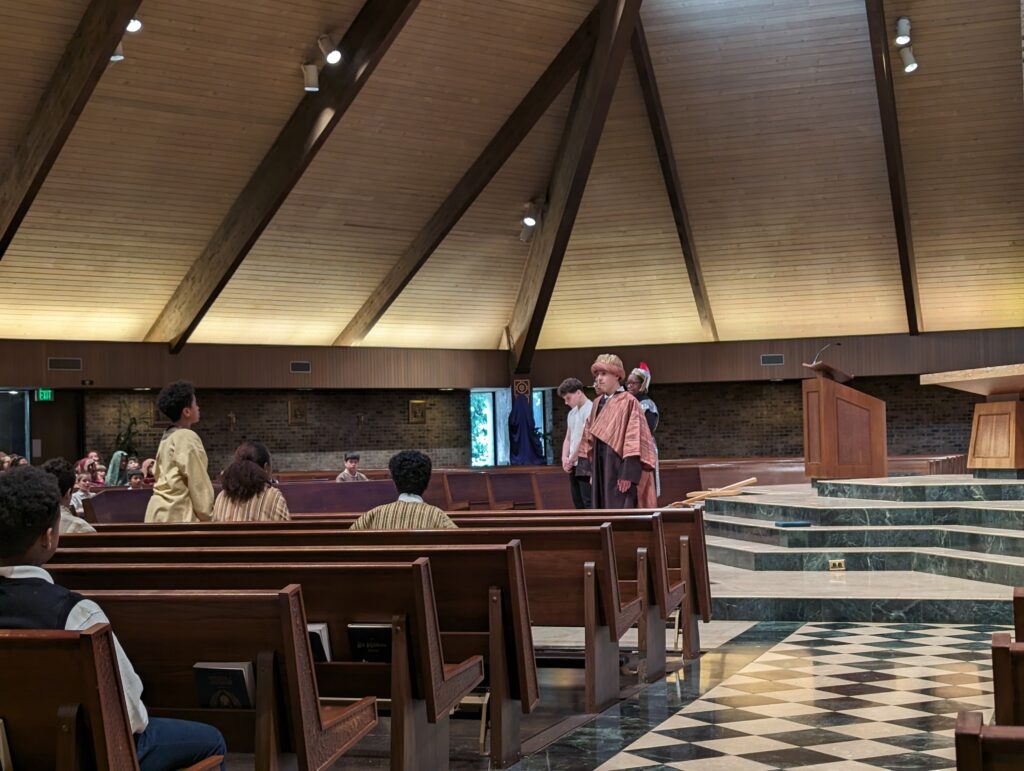
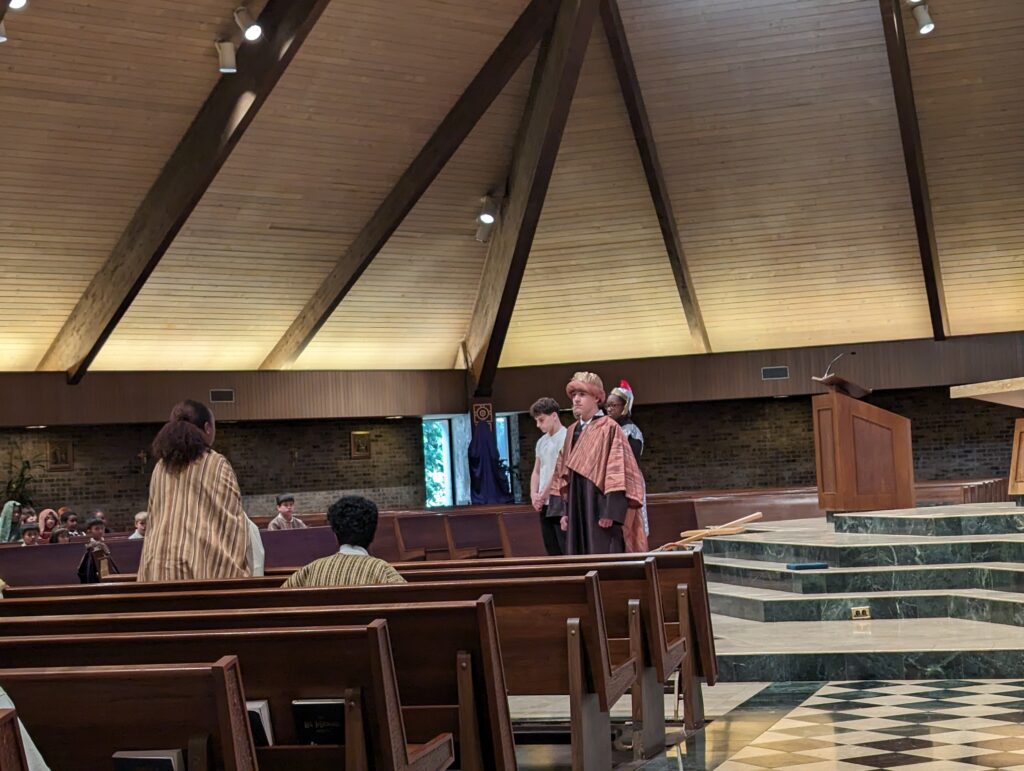
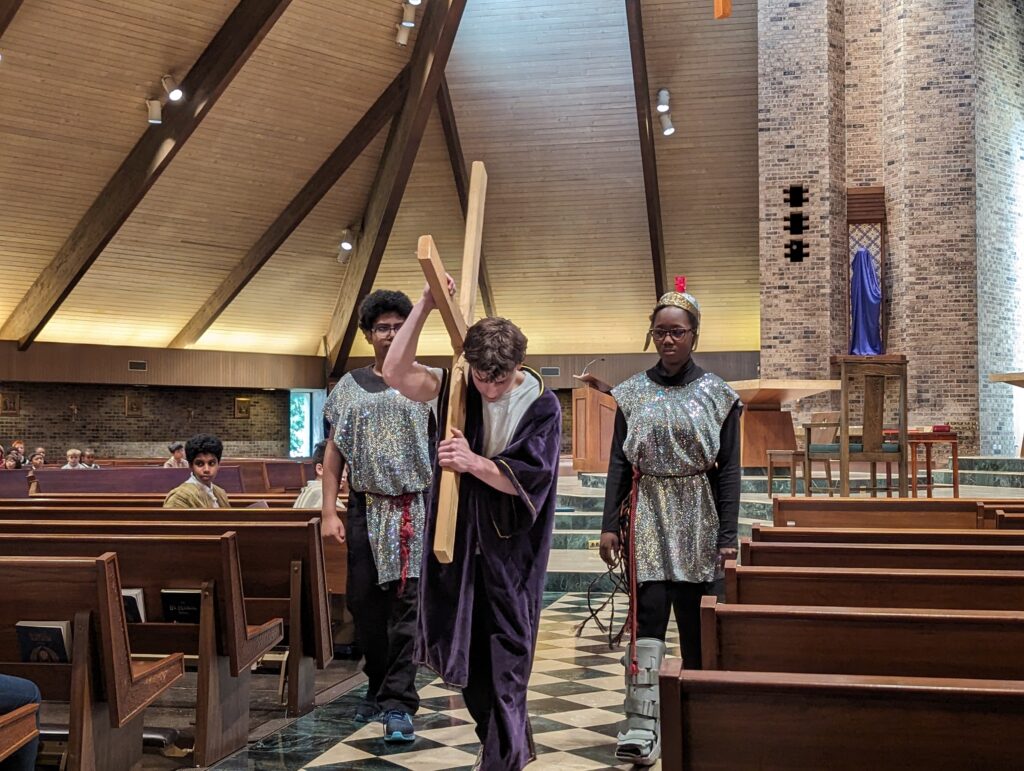
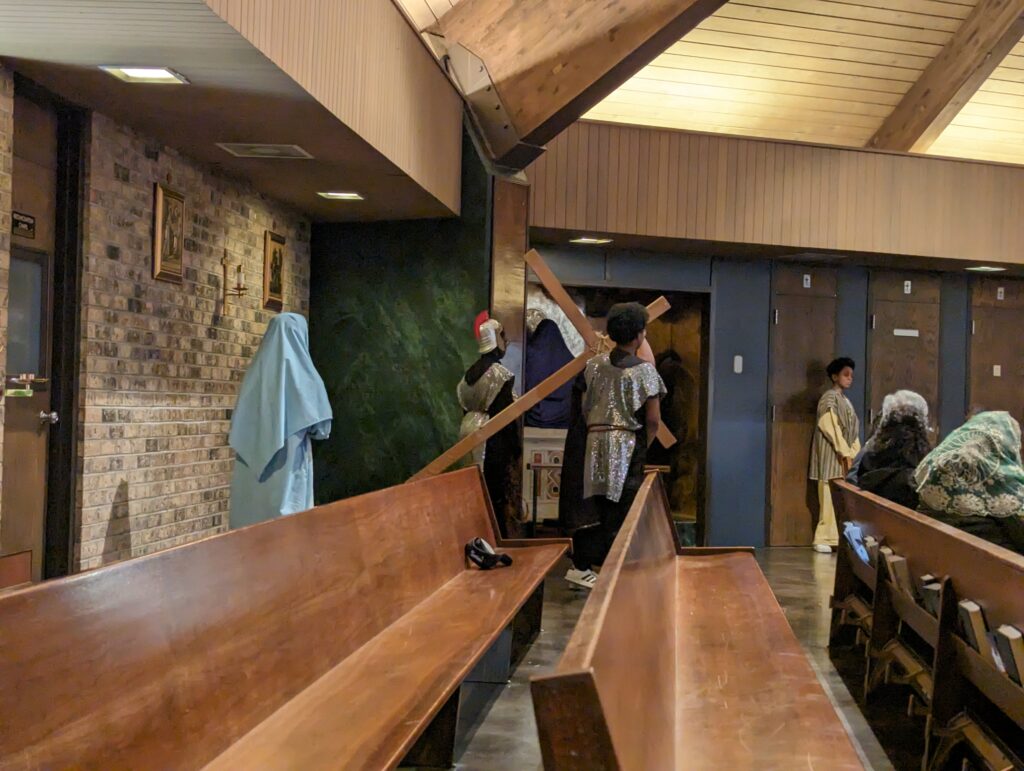
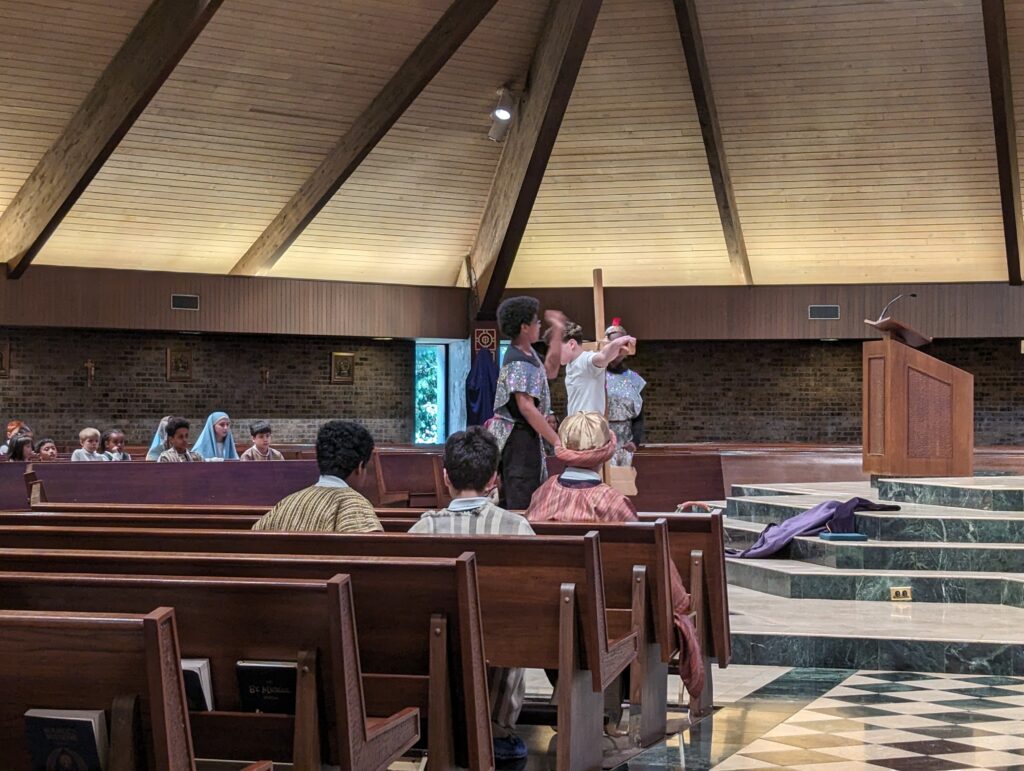
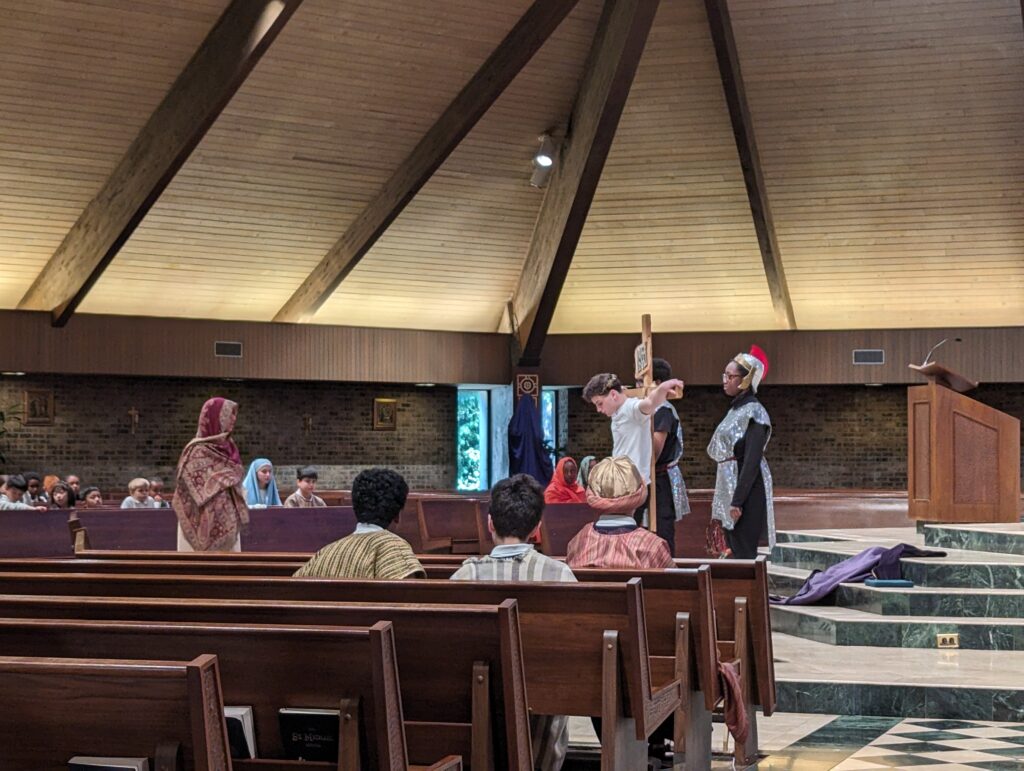
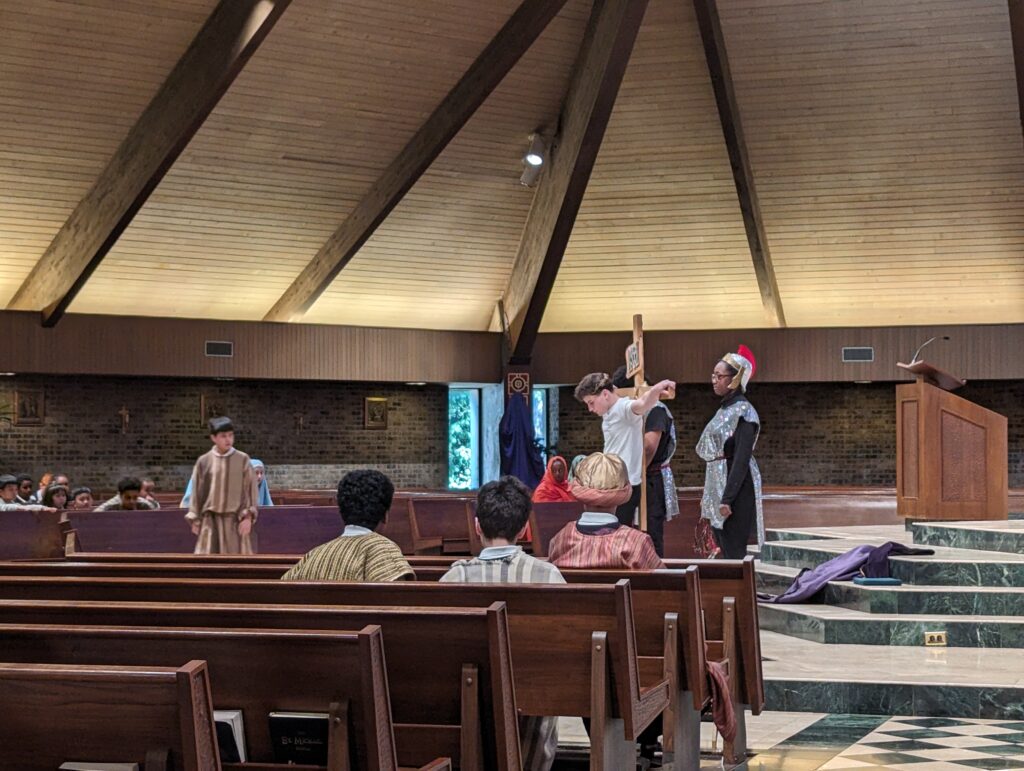
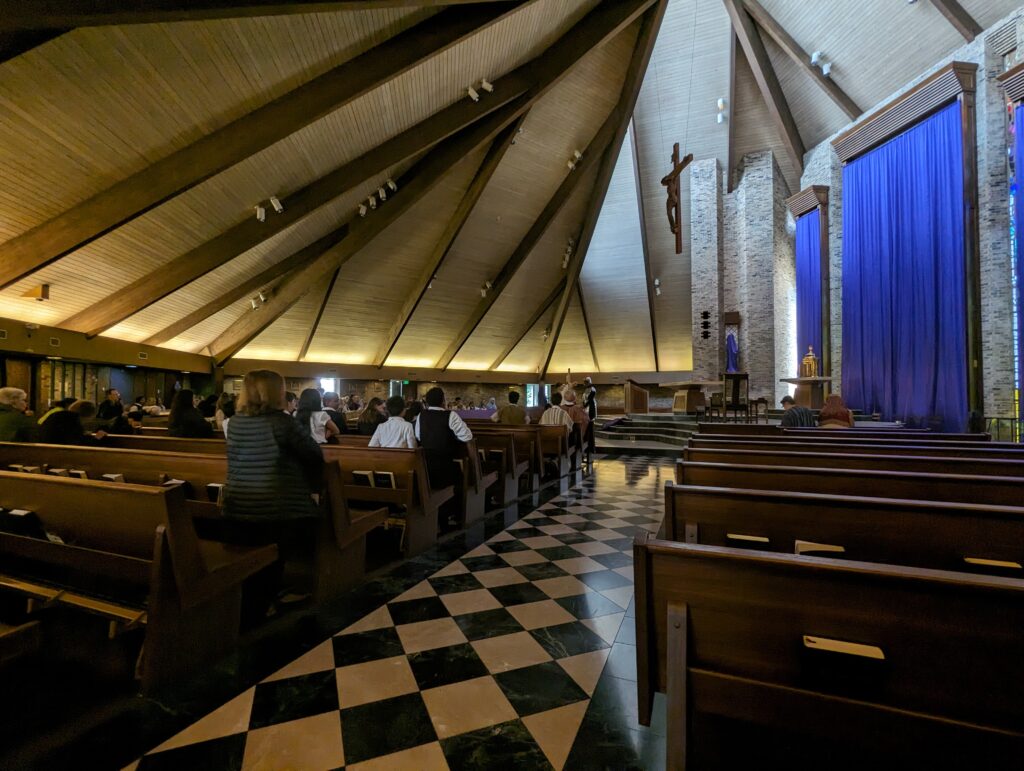
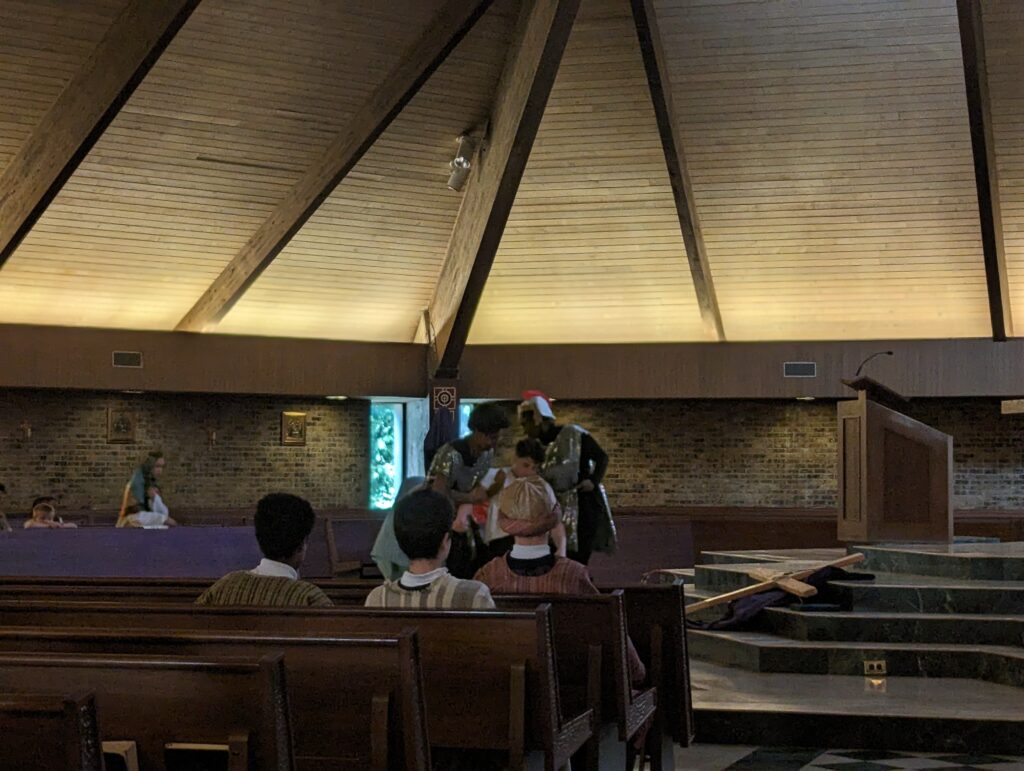
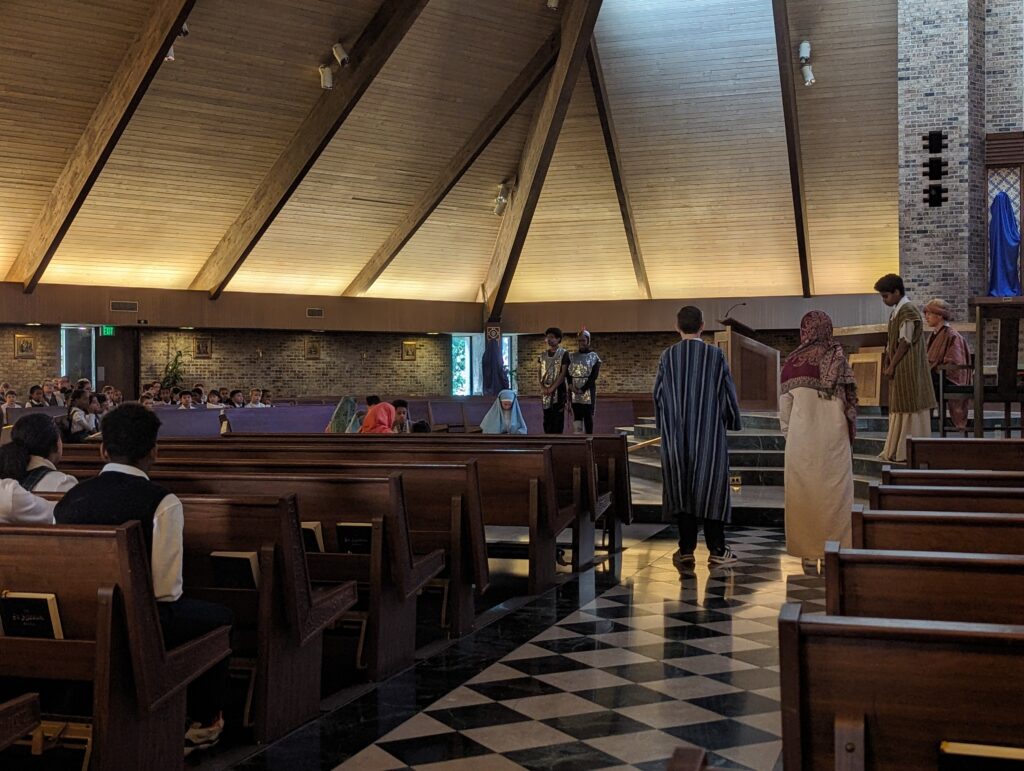
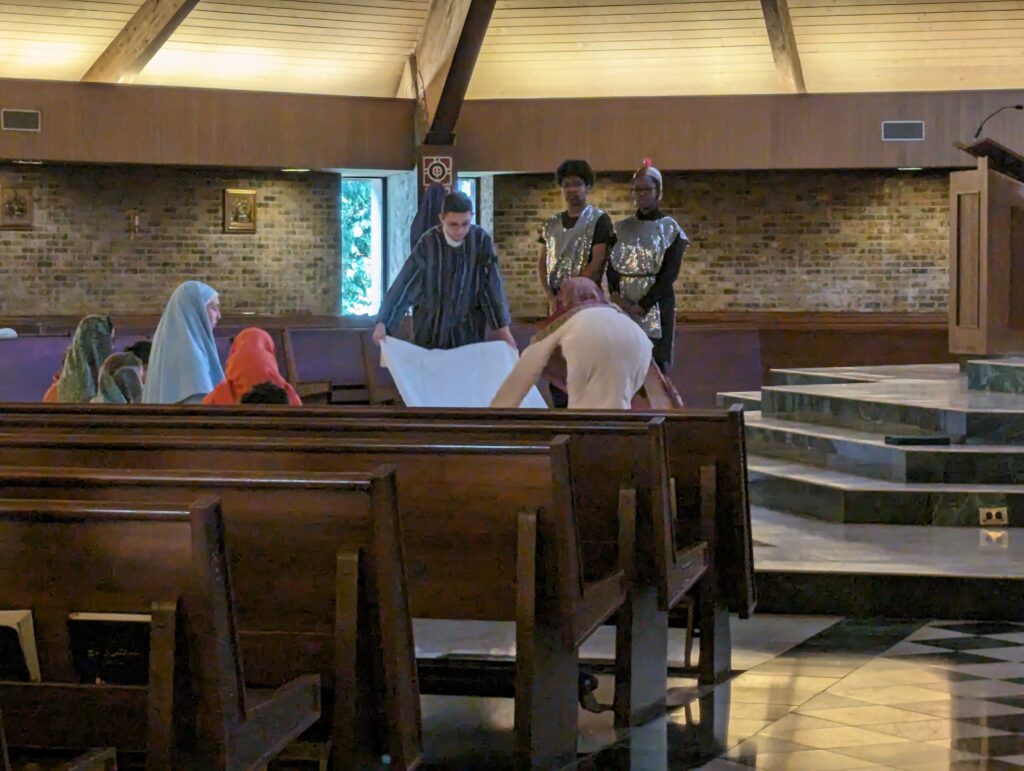

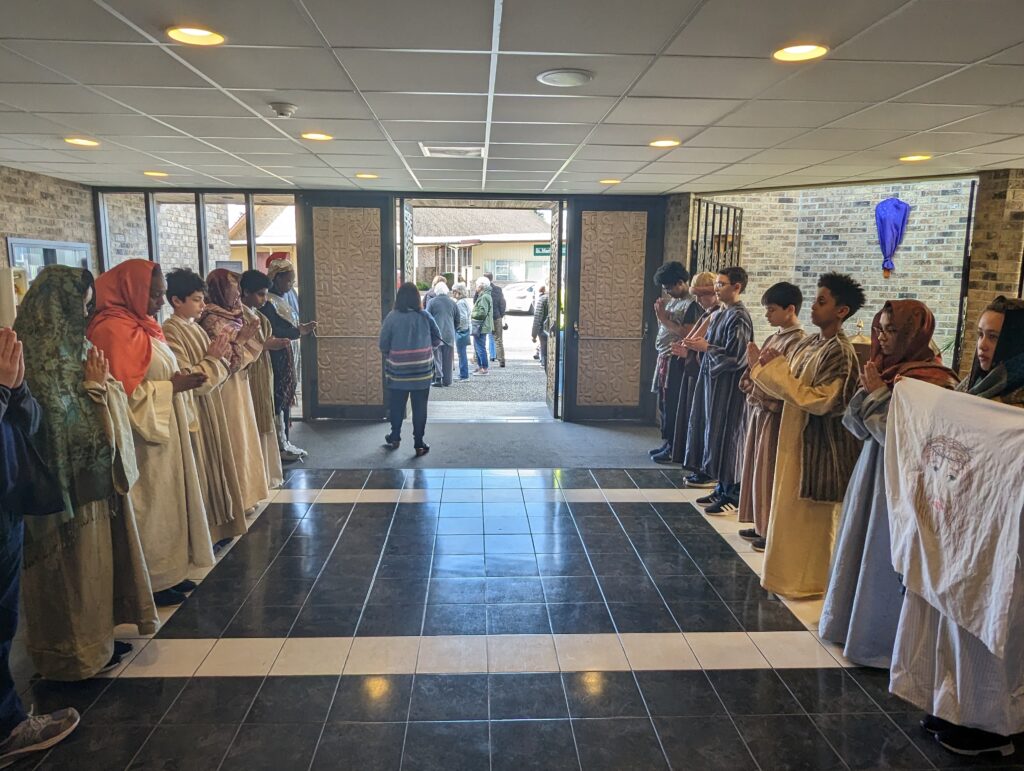
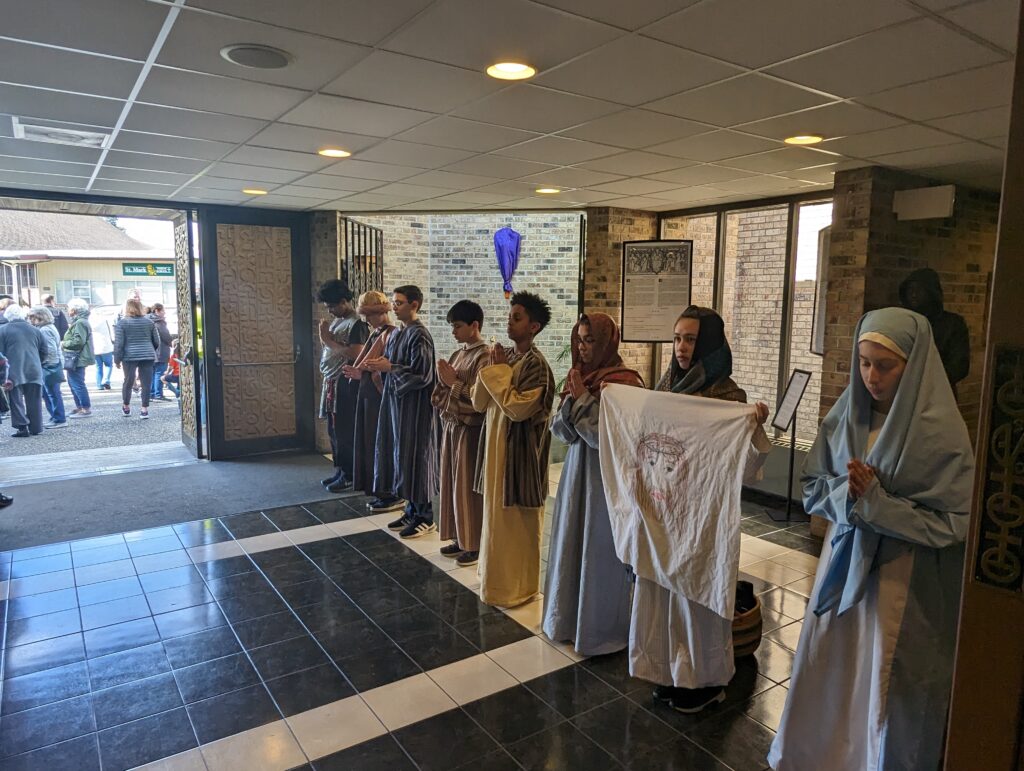
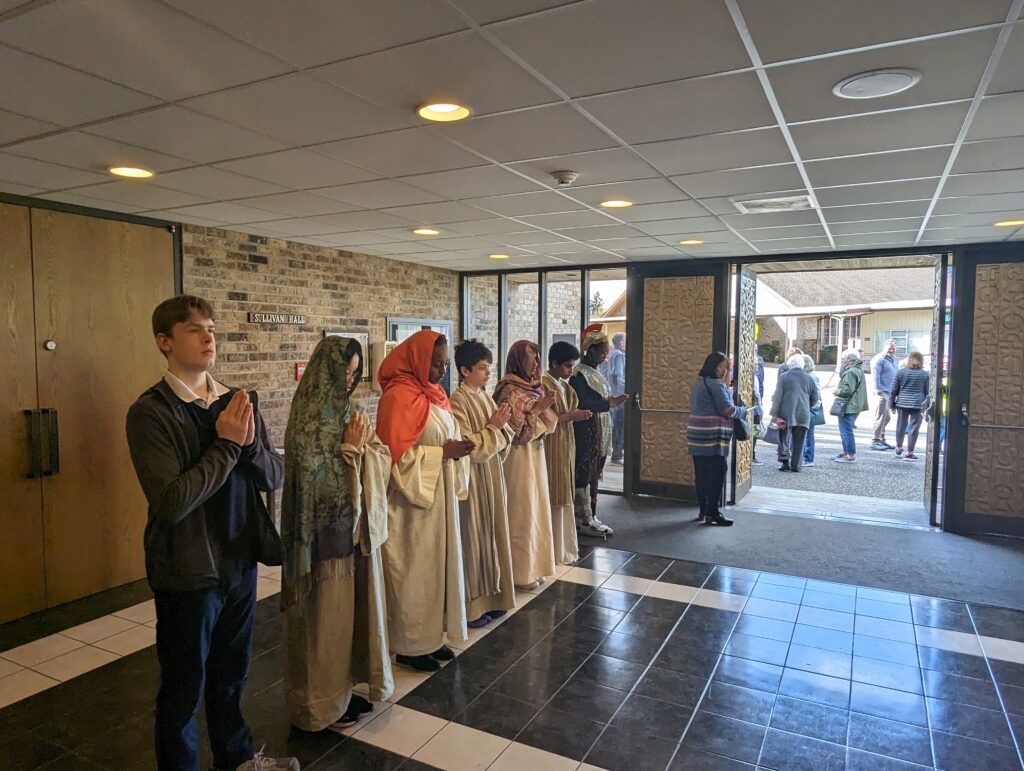
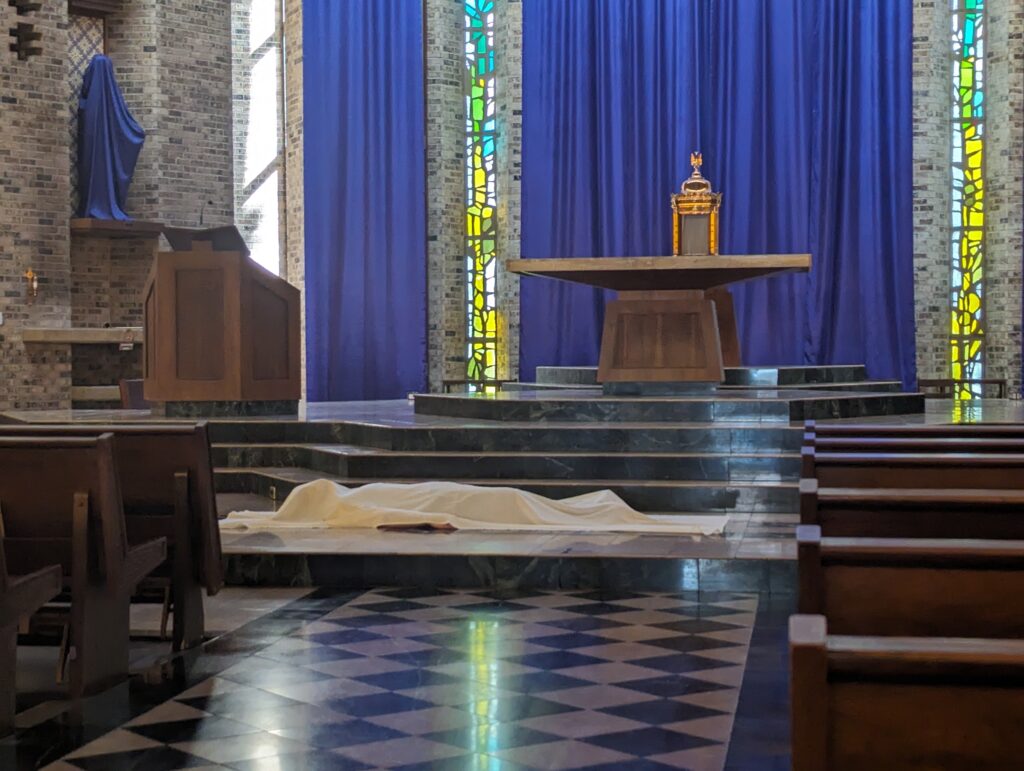
- I’ve been told that the arrangement sung by our choir was put together by our music director, Greg Teeter! ↩︎
